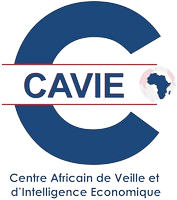[ACCI-CAVIE] The African Union Summit held from February 15th to 18th, 2024, in Addis Ababa, Ethiopia, highlighted several geopolitical and geo-economic crises that threaten the stability and security of the continent. This provided an opportunity for the African Center for Competitive Intelligence (ACCI) to unveil its significant contribution to the prevention and resolution of crises in Africa to the general public.
According to Dr. Guy GWETH, the ACCI’s president, “the contribution of the African Center for Competitive Intelligence (ACCI) is particularly essential in preventing and resolving geopolitical and geo-economic crises in Africa, as peace and security are key factors for the continent’s development and competitiveness.”
The ACCI closely monitors the following major geopolitical crises:
The complex and multidimensional conflict in eastern Congo, which has lasted for several decades. The ACCI closely monitors this crisis characterized by armed conflicts, human rights violations, population displacement, a severe humanitarian crisis, and a significant decline in virtuous investors.
The conflict in the Sahel involving jihadist armed groups, Tuareg rebels, and self-defense militias. This conflict has caused thousands of deaths and displacements, weakening the states in the region. The ACCI has focused its attention on this crisis, particularly since the creation of the Sahelian States Alliance (AES).
The Ethiopian civil war, closely monitored by the African Centre for Competitive Intelligence, began in 2020 between the federal government and the Tigray region. This war has led to a severe humanitarian crisis, weakened the economic fabric, and reduced the country’s attractiveness and investors’ exposure.
Also monitored by the, Sudan has been experiencing a serious political and economic crisis since the military coup of October 2021. This crisis has already weakened the country and scared off investors, raising concerns about a potential new civil war.
Libya has been engulfed in a civil war since 2011, resulting in the fragmentation of the country and the emergence of rival armed groups. This crisis has also facilitated the development, financing, and clandestine migration associated with terrorism. Since its creation in August 2015, the ACCI has closely monitored Libya.
The Gulf of Guinea, the ACCI’s primary focus on security monitoring, has witnessed a resurgence of maritime piracy and attacks on ships. This crisis threatens maritime transport security, exacerbates the concerns of international investors, and hampers competitiveness and development in the sub-region.
Additionally, the ACCI closely monitors the environmental and humanitarian crisis affecting multiple countries in Central Africa, particularly the Lake Chad region. Over the past forty years, Lake Chad has lost 90% of its surface area, leading to flooding, drought, clashes between populations, and a decline in foreign investment.
The ACCI’s Contribution to Crisis Management in Africa
The ACCI plays a discreet but important role in crisis prevention and resolution in Africa. It can further strengthen its capabilities in the following five areas:
Information collection and intelligence production:
The ACCI already collects and analyses information on the root causes of crises in Africa, including political, economic, social, cultural, and environmental factors. The intelligence produced can be used to identify entry points and potential solutions to the crises.
Anticipation and prevention of crises in Africa:
The ACCI provides African states with its analytical expertise to anticipate crisis risks and alerts policymakers and other stakeholders. This powerful alert system, albeit discreet, enables rapid preventive measures to avoid the escalation of crises.
Independent diplomacy and mediation in Africa:
The ACCI can play a role in diplomacy and mediation among the stakeholders involved in these crises, to the extent of its possibilities, although it is not its primary mission. Gradually, this role can contribute more effectively to finding peaceful and sustainable solutions to conflicts, according to the Center’s experts.
Capacity building of African states:
The ACCI can enhance the capabilities of African countries in terms of monitoring and strategic intelligence, particularly through its Risk and Opportunity System (SIRO). This system already allows some African countries to better manage crises and prevent their occurrence while identifying the opportunities available.
Sensitizing and communicating with stakeholders:
The ACCI can raise awareness among different stakeholders about the causes and consequences of crises in Africa, especially when they originate from economic considerations or the strategies of foreign powers. This operation contributes to mobilizing the international community and supporting crisis resolution efforts.
In brief…
Although discreetly, the ACCI could play a leading role in preventing and resolving crises in Africa, by leveraging its investigative, analytical, diplomatic, and negotiation capabilities. However, will require enhanced cooperation with relevant organizations that could amplify its impact.
The Editor


